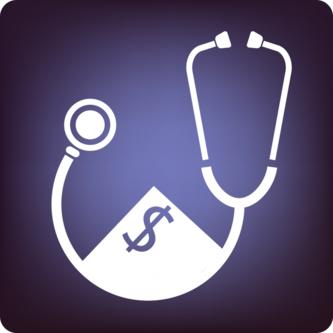https://dailymediahut.com/health/10desires-org-health/ Health informatics is a multidisciplinary field that brings together healthcare, information technology, and data science to improve patient care, streamline healthcare operations, and advance medical research. In this article, we will explore the world of health informatics, its components, applications, and the profound impact it has on the healthcare industry.
What Is Health Informatics?
At its core, health informatics is the intersection of healthcare, information technology, and data management. It involves the acquisition, storage, retrieval, and use of healthcare information to facilitate patient care, research, and overall healthcare management. Health informatics leverages electronic health records (EHRs), health information exchanges, telemedicine, and a range of technologies to enhance the quality and efficiency of healthcare services.
The Components of Health Informatics
Health informatics comprises various components that work together to support healthcare delivery and management:
-
Electronic Health Records (EHRs): EHRs are digital versions of a patient’s medical history, which include diagnoses, treatment plans, medications, and test results. These records enable healthcare providers to access comprehensive patient information quickly and securely.
-
Health Information Exchange (HIE): HIE systems allow healthcare organizations to share patient data electronically, improving care coordination. When a patient moves from one healthcare facility to another, their medical history can be readily available to the new providers.
-
Telemedicine: Telemedicine involves the use of technology to provide healthcare remotely. Patients can consult with healthcare professionals via video calls or secure messaging, making healthcare accessible to individuals who may have geographic or mobility constraints.
-
Clinical Decision Support Systems (CDSS): CDSSs provide healthcare providers with evidence-based guidelines and recommendations to assist in clinical decision-making. These systems help improve the accuracy and consistency of diagnoses and treatment plans.
-
Healthcare Analytics: Healthcare data is vast and complex. Healthcare organizations use analytics to extract meaningful insights from this data, which can aid in identifying trends, improving patient outcomes, and optimizing resource allocation.
-
Health Information Management (HIM): HIM professionals play a crucial role in managing, protecting, and ensuring the quality of healthcare information. This includes coding medical records, safeguarding patient data, and ensuring compliance with healthcare regulations.
-
Health Information Technology (HIT): HIT encompasses the tools, software, and systems used to manage healthcare information. This includes EHR software, patient portals, and health apps.
The Applications of Health Informatics
Health informatics has a wide range of applications, each with the goal of improving healthcare quality, safety, and efficiency. Here are some key areas where health informatics plays a pivotal role:
1. Enhanced Patient Care
Health informatics allows healthcare providers to access patient data quickly, leading to more informed and accurate diagnoses and treatment decisions. It also facilitates communication and collaboration among healthcare teams, resulting in coordinated and patient-centered care.
2. Remote Monitoring and Telehealth
Telemedicine and remote monitoring technologies have gained significant prominence, especially in recent years. These technologies enable healthcare providers to monitor patients with chronic conditions, offer consultations at a distance, and provide care to underserved or remote populations.
3. Public Health
Health informatics is instrumental in disease surveillance, outbreak monitoring, and epidemiological research. Public health officials use data to track and respond to health threats, such as infectious diseases and environmental hazards.
4. Research and Clinical Trials
Health informatics accelerates medical research by enabling large-scale data analysis, facilitating the recruitment of participants for clinical trials, and improving the efficiency of research collaborations. It also supports the development of evidence-based medicine.
5. Health Administration
In healthcare administration, health informatics helps optimize resource allocation, reduce administrative burdens, and improve the overall management of healthcare facilities. This includes patient scheduling, billing, and supply chain management.
The Benefits of Health Informatics
The integration of health informatics into the healthcare industry brings about numerous advantages:
1. Improved Patient Outcomes
Health informatics ensures that healthcare providers have access to up-to-date patient data, leading to more accurate diagnoses and personalized treatment plans. This results in better patient outcomes and increased patient satisfaction.
2. Increased Efficiency
The automation of various healthcare processes reduces paperwork, streamlines administrative tasks, and minimizes errors. Healthcare providers can work more efficiently, enabling them to see more patients and allocate resources effectively.
3. Cost Savings
Health informatics helps control healthcare costs by reducing redundant tests, minimizing administrative overhead, and supporting preventive care measures. These cost savings can be passed on to patients and payers.
4. Data-Driven Decision-Making
The wealth of data collected and analyzed through health informatics allows healthcare organizations to make data-driven decisions. These decisions can lead to improved resource allocation, better patient care, and the identification of areas for quality improvement.
5. Accessibility and Equity
Telemedicine and health information exchanges make healthcare services accessible to a broader population. This is particularly beneficial in rural or underserved areas, ensuring that everyone has access to quality care.
The Challenges and Concerns
While health informatics offers many benefits, it also comes with challenges and concerns:
1. Data Security
Patient data privacy and security are paramount. Protecting health information from cyber threats and unauthorized access is an ongoing concern. Compliance with regulations like the Health Insurance Portability and Accountability Act (HIPAA) is essential.
2. Interoperability
The seamless exchange of patient information among different healthcare systems and organizations remains a challenge. Ensuring that EHRs and other systems can communicate effectively is crucial for patient care coordination.
3. Data Quality
The accuracy and completeness of healthcare data are fundamental to the success of health informatics. Inaccurate or incomplete data can lead to incorrect diagnoses and treatment decisions.
4. Workforce Training
Healthcare professionals need training to effectively use health informatics tools and systems. The industry faces a shortage of skilled individuals who can navigate and optimize these technologies.
5. Ethical Concerns
Issues related to data ownership, consent, and the ethical use of patient data in research and commercial endeavors are important topics that need to be addressed as health informatics continues to evolve.
The Future of Health Informatics
As technology and healthcare continue to evolve, the future of health informatics holds great promise. Several developments are likely to shape the field:
1. Artificial Intelligence (AI) and Machine Learning
AI and machine learning will play a significant role in analyzing large healthcare datasets, identifying trends, and providing personalized treatment recommendations.
2. Genomic Informatics
The integration of genomic data into health informatics will enable more precise and personalized medicine, as treatment plans can be tailored to a patient’s genetic makeup.
3. Patient Empowerment
Patients are becoming more active participants in their healthcare. Health informatics will support this trend by giving patients easier access to their own health data and providing tools for self-management.
4. Mobile Health (mHealth)
The use of mobile apps and wearable devices for health monitoring will continue to grow, making it easier for individuals to track their health and communicate with healthcare providers.
5. Global Health Informatics
Health informatics will have a more significant impact on global health, helping underserved populations access quality care and supporting international healthcare efforts.
In conclusion, health informatics is a dynamic and ever-evolving field that plays a pivotal role in improving healthcare quality, efficiency, and accessibility. As technology advances and healthcare systems adapt, the synergy between health and information technology will continue to drive innovation and transformation in the healthcare industry. With its potential to revolutionize patient care, research, and healthcare management, health informatics is poised to lead us toward a healthier future.





